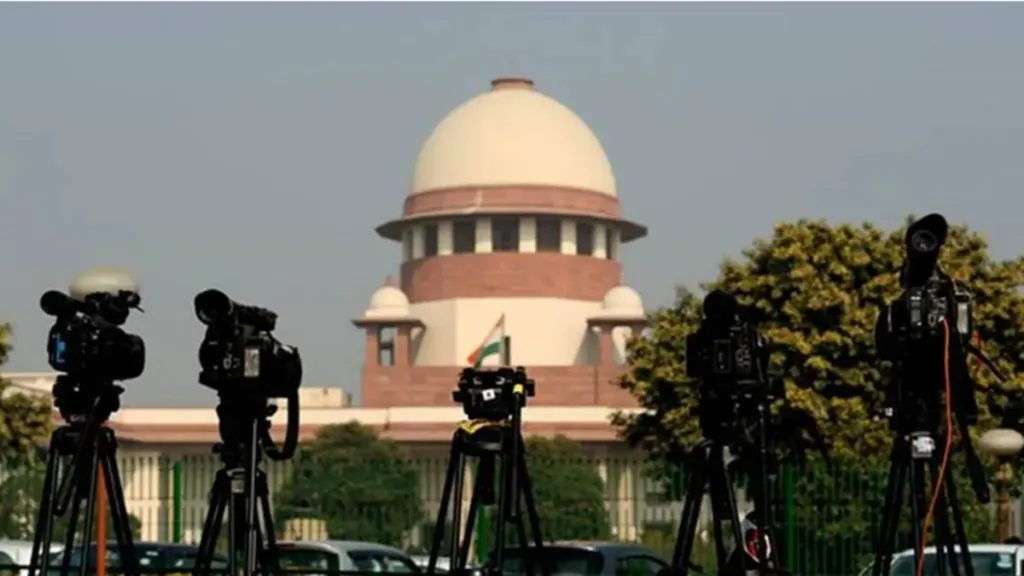The Supreme Court on Tuesday held that the 2016 amendment to benami transactions law cannot be applied retrospectively and quashed certain provisions in the law that criminalised such transactions.
Refusing to buy the government’s argument that the changes were merely procedural and not substantive, the top court struck down the provisions of the Benami Transactions (Prohibition) Act of 1988, which provided for imprisonment for a term that may extend to three years or with fine or with both for those indulging in ‘benami’ transactions.
The changes in the law were made as part of the government’s assault on black money and was one of the harshest steps taken by it along with the demonetisation of high-value bank notes with this intent. Subsequent to the 2016 amendment, the income tax department has issued hundreds of notices to companies, other firms and individuals and initiated criminal prosecution and confiscation proceedings against them by invoking the retrospective nature of the new provisions. These actions will now be invalid, giving relief to the parties concerned.
The apex court also recommended independent provisions of forfeiture, instead of criminal prosecution.
While various high courts held different views about the retrospective application of the 2016 amendments, the SC’s ruling sets the issue at rest.
Also read: Directors’ liabilities in Indian companies: Here are various statutes under the Indian laws
The amendment brought transactions like cash transfers, property deals, and share issuances under its ambit. It has been used by the taxman where the income Tax Act was powerless.
Terming Section 3(2) “unconstitutional” on the ground of being “manifestly arbitrary,” a Bench led by Chief Justice NV Ramana said the amendment to the 28-year-old law will now be applicable only on transactions that took place after the changes were introduced.
The CJI, writing the judgment for the Bench, also ruled that in “rem forfeiture” provision under Section 5 of the unamended Act is unconstitutional for being manifestly arbitrary. The provision being punitive in nature, can only be applied prospectively and not retroactively, the 96-page judgment stated.
After the amendment, benami transactions attracted higher punishment.
While there was divided opinion among various high courts on the issue, legal experts feel that the Supreme Court judgment has provided much needed clarity by holding that the amendments will apply only prospectively.
S Vasudevan, executive partner, Lakshmikumaran & Sridharan Attorneys, said the Benami Transactions (Prohibition) Amendment Act, 2016, had made radical changes in the benami law. Some of these changes includes substitution of definition of ‘benami transaction’ which changed the entire scope of benami transactions, amendments relating to attachment and confiscation of the benami property, punishment for entering into benami transaction as well as for inducing or abetting a person to enter into benami transaction, punishment for giving false information, etc”. Prior to these amendments, the benami law was a toothless tiger and effectively inoperative,” he added.
Under the changed law, new authorities were created and were given extensive powers of discovery, inspection, compelling attendance and production of documents. For initiating proceedings for provisional attachment of the properties and confiscation, they were further empowered to take the assistance of police, custom, income tax officers and other relevant officers for furnishing information.
The issue had raised eyebrows over how the authorities had used the law post amendments. The new law was used even where the income tax Act was powerless.
According to Punjab Additional Advocate General and SC lawyer Sunil Fernandes, the SC judgment is correct and is in consonance with the long-standing legal position that has been evolved by the apex court itself in its earlier judgments over the past decades. “Any criminal law or any law that penal consequences cannot be applied retrospectively (ie from a prior date) and can apply only prospectively (ie from a future date). This judgment hasn’t come a day too soon and will give much needed clarity to pending prosecutions under the Benami Act,” he added.
The judgment came on an appeal in the case, UoI vs Ganpati Dealcom, where the government had challenged the Calcutta High Court ruling that had held that the new law did not apply retrospectively.

